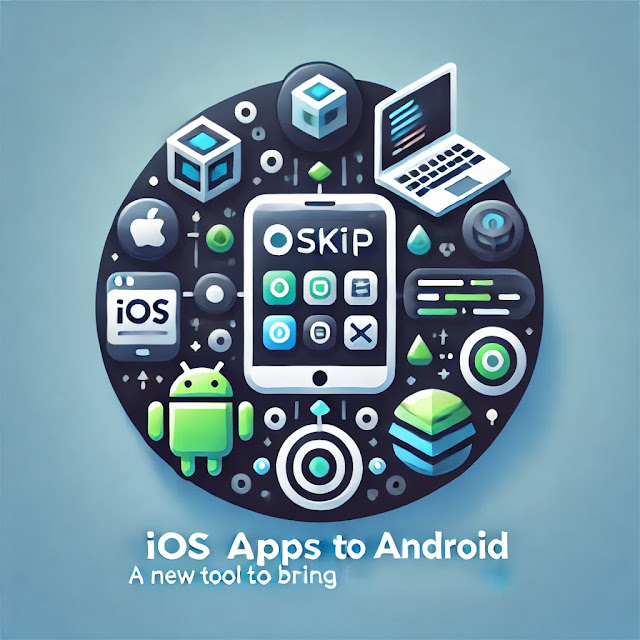A new tool called **Skip** is poised to change the game, allowing iOS developers to create native Android apps with minimal effort.
The world of app development is fraught with challenges, one of the most significant being the need to develop separate applications for both iOS and Android platforms. While cross-platform frameworks like React Native exist, they often result in subpar user experiences on both platforms. However, a new tool called **Skip** is poised to change the game, allowing iOS developers to create native Android apps with minimal effort, ensuring a seamless experience across both platforms.
#### The Challenge of Cross-Platform Development
For many developers, the idea of creating an app that functions perfectly on both iOS and Android is a daunting task. The primary issue lies in the fundamental differences between the two operating systems, which necessitate the development of separate codebases. Although cross-platform frameworks such as React Native have been introduced to simplify this process, the results are often less than ideal. These frameworks can lead to apps that feel clunky or lack the polish of native apps, which can be frustrating for both developers and users.
Enter Skip—a tool designed to bridge this gap by enabling iOS app developers to easily create native Android apps without compromising on performance or user experience.
#### What is Skip?
Skip is a revolutionary tool that allows developers to take their existing iOS applications and effortlessly compile them into native Android apps. The framework has been in beta for over a year, and after extensive testing and refinement, it is now widely available for developers to use. Remarkably, Skip is entirely free for indie developers, making it an accessible solution for smaller development teams or individual creators.
The core innovation behind Skip lies in its ability to take your existing Swift and SwiftUI code and compile it into Kotlin and Compose, the primary languages used for Android development. This compilation process ensures that the Android app behaves as though it was developed natively, maintaining the same level of performance and user experience as its iOS counterpart.
#### How Skip Works
For developers who are already familiar with iOS development, Skip offers a seamless transition to Android development. Here’s how it works:
- **Code Compilation:** Skip takes your existing Swift and SwiftUI code and compiles it directly into Kotlin and Compose. This means that the code you’ve written for iOS is transformed into code that can run natively on Android. The key advantage here is that your iOS code remains unmodified, allowing you to continue using Xcode to manage both iOS and Android versions of your app from a single codebase.
- **Unified Codebase:** One of the most significant benefits of Skip is the ability to maintain a unified codebase for both platforms. This eliminates the need to write and maintain separate code for iOS and Android, drastically reducing the workload for developers. You can easily decide which parts of your code you want to share between the two platforms and which parts should remain platform-specific. This flexibility ensures that you can optimize your app’s performance on each platform without having to compromise.
- **Library Support:** Skip also supports the use of libraries specific to each platform. You can continue using any Swift/Objective-C libraries for iOS, while also taking advantage of Kotlin/Java libraries for Android. This broad compatibility allows you to leverage the full range of tools and resources available for both platforms, further simplifying the development process.
#### Why Skip is a Game-Changer for Developers
The introduction of Skip is a significant milestone for app developers, particularly those working independently or in small teams. Here’s why Skip is poised to revolutionize the app development landscape:
- **Lower Barrier to Entry:** For many indie developers, the cost and complexity of developing separate apps for iOS and Android can be prohibitive. Skip drastically lowers the barrier to entry by allowing developers to create a native Android app without having to learn a new programming language or start from scratch. This is particularly beneficial for smaller developers who may not have the resources to maintain separate codebases.
- **Time and Cost Efficiency:** By enabling developers to maintain a single codebase for both platforms, Skip significantly reduces the time and effort required to develop and maintain apps. This efficiency translates into cost savings, allowing developers to focus more on innovation and less on the logistical challenges of cross-platform development.
- **Seamless User Experience:** One of the most critical factors in app development is ensuring a seamless user experience across platforms. Because Skip compiles iOS code into native Android code, the resulting app feels just as polished and responsive as an app developed specifically for Android. This means that users on both platforms can enjoy a consistent, high-quality experience.
- **Flexibility and Control:** Skip provides developers with the flexibility to choose which parts of their code to share between platforms and which to keep separate. This level of control allows developers to optimize their apps for each platform without having to sacrifice performance or functionality.
#### Getting Started with Skip
If you’re an iOS developer interested in expanding your app’s reach to Android users, Skip offers a straightforward and powerful solution. Getting started is as simple as integrating Skip into your existing development workflow and letting the tool handle the rest.
Whether you’re a seasoned developer or just getting started, Skip makes it easier than ever to bring your app to Android, opening up new opportunities for growth and engagement.
#### Learn More About Skip
Skip is now widely available and free for indie developers. To learn more about how Skip can help you bring your iOS app to Android, visit their website and explore the possibilities. With Skip, the future of cross-platform app development is here, and it’s never been easier to create high-quality apps that perform flawlessly on both iOS and Android.























COMMENTS